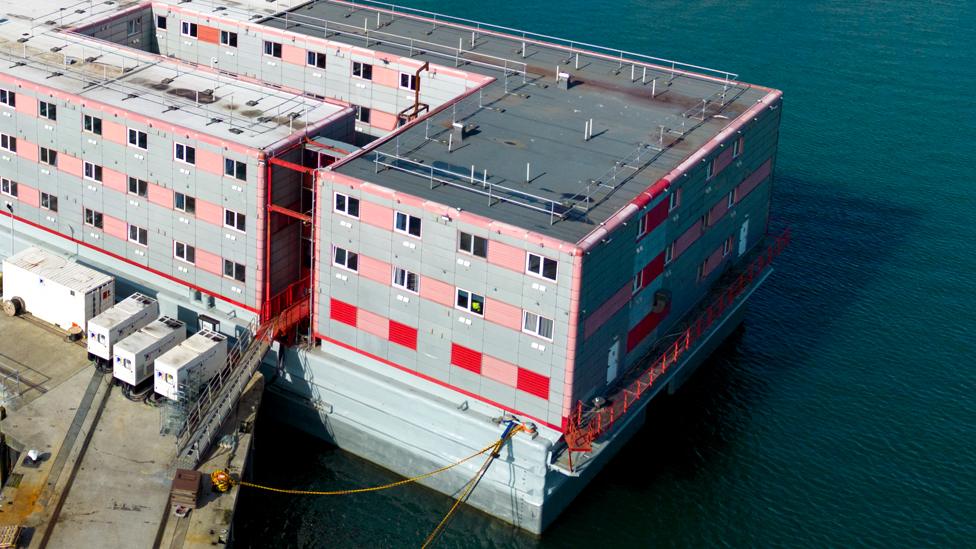Bibby Stockholm: No suspicions over migrant's barge death - coroner
- Published
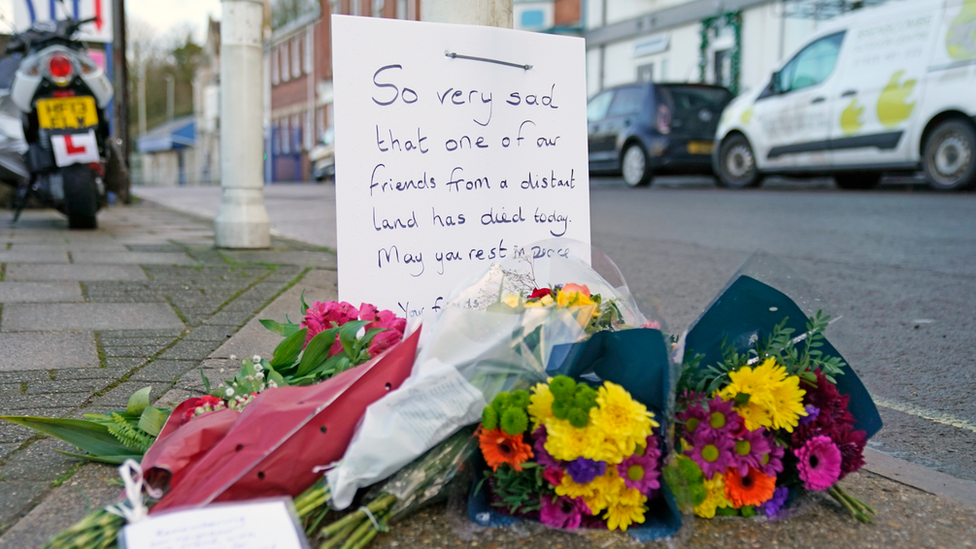
Flowers have been left at the entrance to Portland Port where the barge is moored
There are no suspicious circumstances surrounding the death of an Albanian asylum seeker on board the Bibby Stockholm barge, a coroner has said.
Dorset coroner Rachael Griffin told an inquest no other person was involved in the death of Leonard Farruku, 27.
He was found unresponsive in his cabin on the accommodation vessel at Portland Port on 12 December, the coroner told the hearing in Bournemouth.
The inquest was adjourned until July to gather evidence from barge authorities.
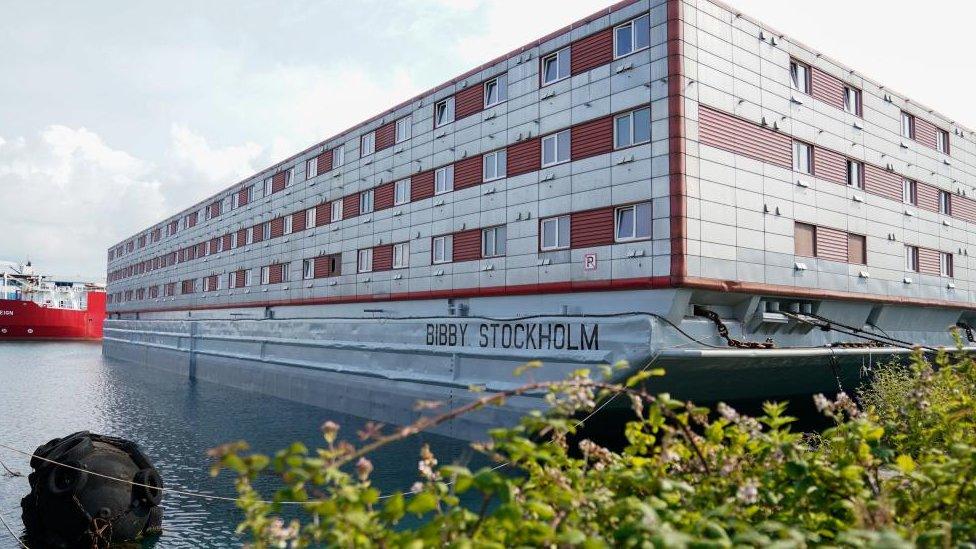
The vessel, which can house 500 men awaiting asylum decisions, first came into use in August
Mr Farruku, an unemployed single man, was formally identified by his cousin, the hearing was told.
The cause of death was given as neck compression as a result of hanging.
Ms Griffin said she had requested statements from the asylum seeker's family as well as the Home Office, Portland Port, barge operators Landry and Kling, security providers Isca and Dorset Council.
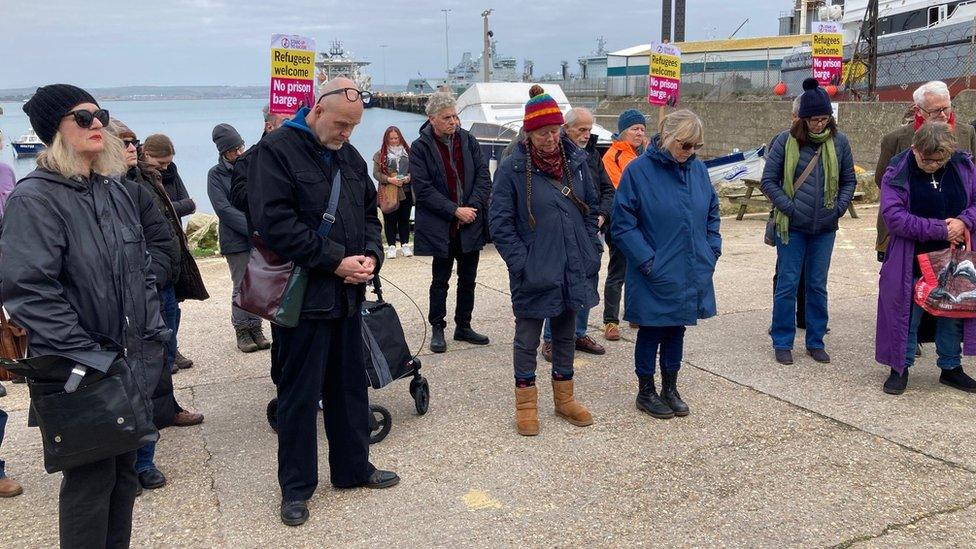
People gathered outside Portland Port to pay their respects following the death
The vessel, which can house up to 500 men, first came into use in August as part of government plans to cut the cost of hotel accommodation for asylum seekers.
The death has led to calls for an independent investigation from campaigners, who have also raised wider concerns about conditions on the barge.
Labour MPs have written to the Home Secretary asking to inspect the Bibby Stockholm barge.
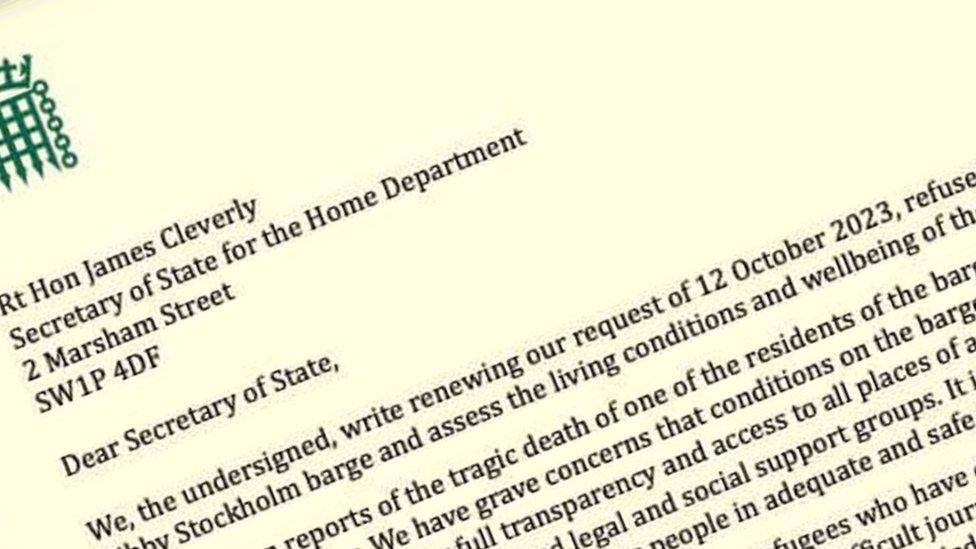
Labour MPs have asked to inspect the Bibby Stockholm
A Home Office spokesperson previously said it took its responsibility for the well-being of those on board incredibly seriously.
Conditions on the Bibby Stockholm came under scrutiny days after the first asylum seekers were moved on board when the bacteria Legionella was discovered in the water supply.
The barge had to be emptied but began being used again around two months later.
If you're affected by the issues in this report, you can find support from BBC Action Line.

Follow BBC South on Facebook, external, X, external, or Instagram, external. Send your story ideas to south.newsonline@bbc.co.uk, external.
Related topics
- Published18 December 2023
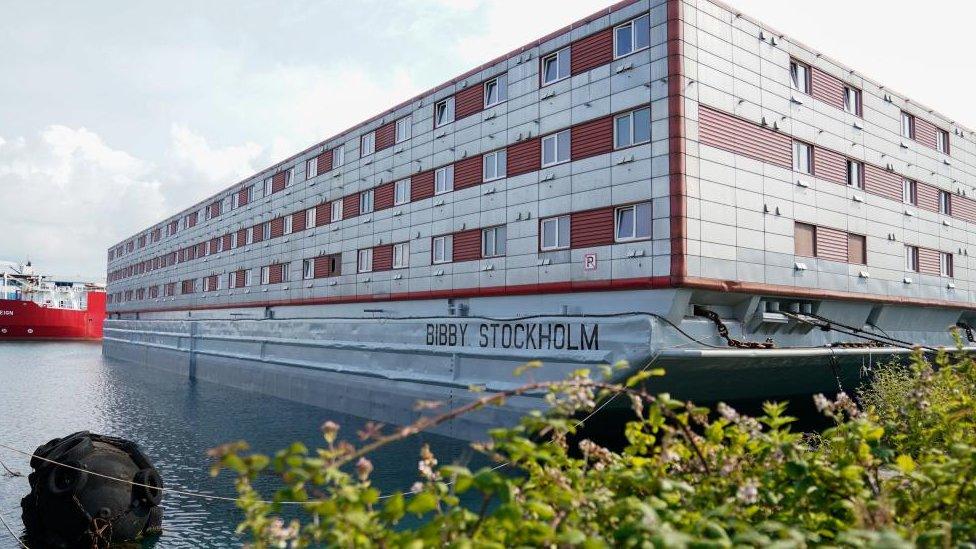
- Published16 December 2023
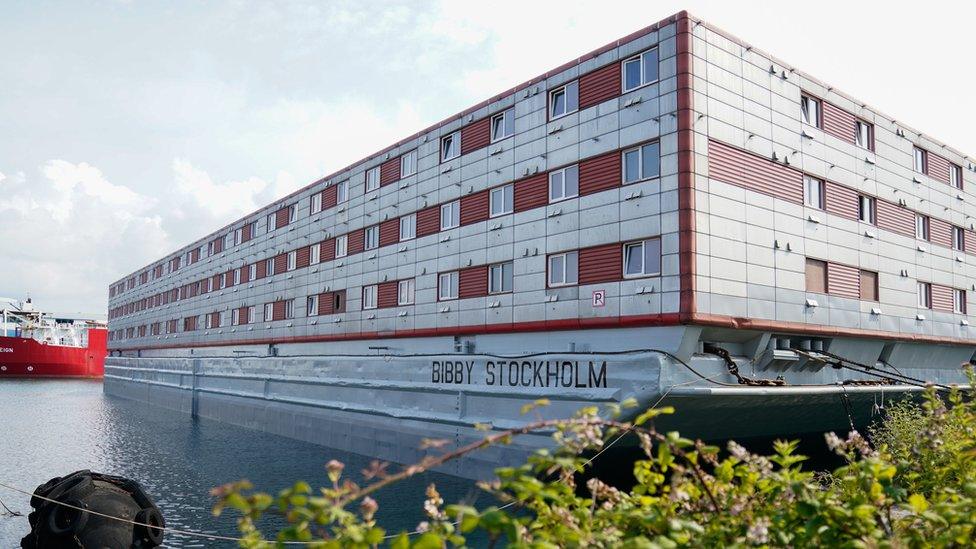
- Published13 December 2023
